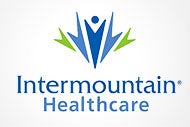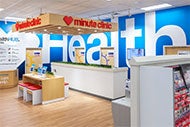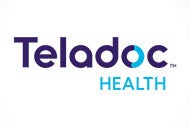

Providers Cut Costs, Better Engage Patients

Leaders from health care delivery systems, insurers, the pharmaceuticals industry and technology companies converged on San Francisco last week for the annual J.P. Morgan Healthcare Conference and got a close-up look at just how quickly the field is transforming. News came quickly on several fronts, including company acquisitions, the ongoing push among many payers into clinical services as they try to drive down care delivery costs and more.
But the underlying message behind many of the presentations and panel discussions centered around major players having determined what they need to do to better serve patients while advancing sustainable business growth models.
“Amidst all the talk about technology, changing economics and advances in clinical delivery, a consistent theme from all the health system leaders in attendance was the intense focus on patients and a patient- or consumer-centric orientation for innovation. This may be the most important differentiator and true north for hospitals as they continue to transform,” said AHA Executive Vice President and Chief Operating Officer Maryjane Wurth, who attended the conference.
Leaders Come Together with Updates on Health Care Transformation
 Intermountain Healthcare, long committed to reducing patients’ out-of-pocket costs, is making good on its pledge albeit at a steep price, Chief Financial Officer Bert Zimmerli told a packed crowd.
Intermountain Healthcare, long committed to reducing patients’ out-of-pocket costs, is making good on its pledge albeit at a steep price, Chief Financial Officer Bert Zimmerli told a packed crowd.
Efforts to rein in costs for patients and its health plan members have narrowed Intermountain’s margin by $100 million in the past two years, Zimmerli said, adding that the health system is satisfied because “it’s the right thing to do.” One way the system helped reduce costs for patients: dropping the cost of a normal, vaginal delivery with a plan available for uninsured patients from about $6,000 to $4,150. How will the system make up for the price drop? Zimmerli said Intermountain will redouble its efforts to improve efficiencies throughout the system.
If patients are looking to spend less out of pocket on health care, they’re also looking for greater transparency on price. Northwell Health, which has offered a price estimator for some time, shared that it plans to implement a major upgrade to its platform by year-end, Modern Healthcare reported.
Under the existing system, Northwell employees call the patients’ health plan to obtain an estimate of reimbursement, which takes time. Under the updated platform, patients will be able to get price estimates on their own through the Northwell website. The system is working with the credit-reporting firm Experian to use technology that will electronically submit relevant information to a patient’s insurer to determine the patient’s out-of-pocket costs for certain procedures.
Payers Push to Slow Disease Progression
 Payers like Humana and Oscar Health, along with Aetna, represented by its parent company CVS Health, provided updates on how their evolving strategies are reducing health care costs and driving health behaviors. Humana CEO Bruce Broussard said the flurry of payer mergers and acquisitions in the payer field largely have been fueled by a desire to slow disease progression. Humana’s investments in primary care and physician groups illustrate its commitment in this area.
Payers like Humana and Oscar Health, along with Aetna, represented by its parent company CVS Health, provided updates on how their evolving strategies are reducing health care costs and driving health behaviors. Humana CEO Bruce Broussard said the flurry of payer mergers and acquisitions in the payer field largely have been fueled by a desire to slow disease progression. Humana’s investments in primary care and physician groups illustrate its commitment in this area.
CVS Health’s acquisition of Aetna fits this profile. CEO Larry Merlo told conference attendees that CVS stores are focused on offering 80% of what a primary care physician can treat, adding that the company is looking to partner with doctors, not replace them. The retailer’s HealthHUB format offers zero or low co-pays for certain Aetna health plan members using CVS services underpins the company’s strategy. The company is on track to have 1,500 HealthHUB stores operating by the end of 2021, Merlo said.
And in an important shift, companies like Oscar and Devoted Health, which offer Medicare Advantage plans, are changing the customer experience. They’re making the experience more about health than their insurance products.
Oscar CEO Mario Schlosser told attendees that his company’s ability to achieve higher levels of engagement with its small group and Medicare Advantage products have led to greater retention, higher premiums, reduction of network costs through direction of doctor visits to lower cost, high-quality providers and channeling of prescription drugs to lower-cost choices via the establishment of a $3 co-pay for “preferred” drugs. These efforts have reduced total health care costs, Schlosser said, adding that Oscar also has been able to boost the use of telemedicine patient visits to 40% among patients with chronic conditions and to 30% among its general patient population.
Major Tech Deal to Drive Telehealth Integration
 Providers and payers weren’t the only ones making news about how they’re working to remove or reduce cost and transform care delivery. On the eve of the conference, telemedicine giant Teladoc said it was buying the virtual care platform provider InTouch Health for $600 million.
Providers and payers weren’t the only ones making news about how they’re working to remove or reduce cost and transform care delivery. On the eve of the conference, telemedicine giant Teladoc said it was buying the virtual care platform provider InTouch Health for $600 million.
The deal will allow Teladoc, a developer of consumer-to-provider telehealth solutions, to add InTouch Health’s provider-to-provider services as it continues to bet on the field seeing significant growth in the use of telehealth services through an integrated network. InTouch Health partners with more than 450 hospitals and health systems with more than 14,500 physician users globally. The company’s platform supports more than 40 clinical use cases. This not only will make it easier for providers to deliver virtual care, but also to consult with colleagues and specialists to improve the value of care.
Watch for more coverage and insights from the conference.



